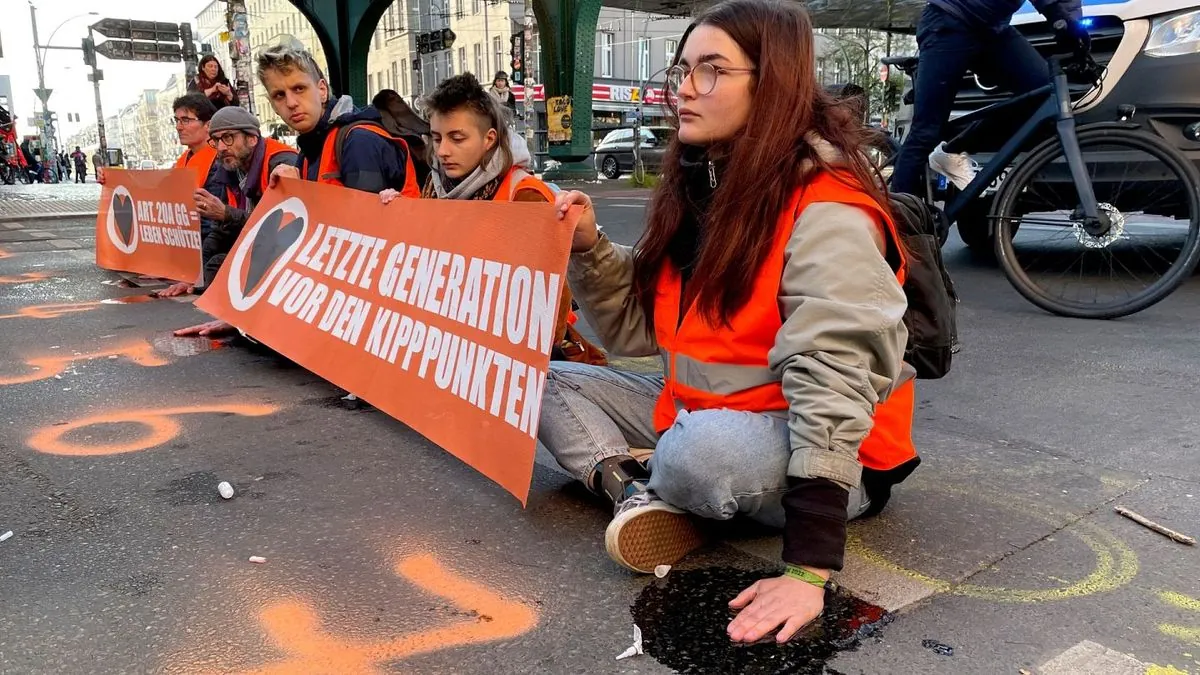In 2023, Germany's climate policy faced a significant setback when its Constitutional Court rejected a 60 billion euro fund earmarked for renewable energy investments. This decision has left the country's climate strategy in disarray, with political parties struggling to find common ground on achieving climate targets. In response, Germany's climate activist movement has intensified its efforts to drive change.
Germany has a rich history of environmental activism, with roots dating back to the 19th century. The country's diverse climate activist landscape encompasses various groups, each employing distinct strategies to influence policy. Three prominent organizations stand out: Fridays for Future, Letzte Generation, and Ende Gelände.
Fridays for Future, inspired by Swedish activist Greta Thunberg, has transformed individual moral protest into a mass social movement. At its peak, hundreds of thousands of Germans from all walks of life participated in peaceful demonstrations, marking the largest policy-related protests in postwar German history. However, the movement's impact has been limited by the political system's tendency to find compromises that fall short of activists' demands.
Letzte Generation, or Last Generation, has adopted a more provocative approach. The group aims to disrupt society through actions such as blocking major thoroughfares and airports. While these tactics have garnered attention, they have also sparked public anger and potentially led to policy reversals, raising questions about the effectiveness of disruptive strategies in achieving long-term goals.
Ende Gelände focuses on targeting fossil fuel infrastructure, drawing inspiration from historical protest movements against nuclear power in the 1970s and 1980s. This materialist approach aims to increase costs for fossil fuel supporters, but its intersection with politics has led to backlash and unpredictable outcomes.
Despite the challenges faced by these groups, some argue that their collective efforts have yielded positive results. The European Commission's climate policy, for instance, was influenced by the widespread school strikes organized by Fridays for Future. Additionally, a landmark German Supreme Court ruling declared the government's climate policy inadequate for protecting the constitutional freedoms of future generations.
Germany has set ambitious climate goals, including reducing greenhouse gas emissions by 65% by 2030 compared to 1990 levels and achieving carbon neutrality by 2045. The country has invested heavily in renewable energy, becoming a global leader in wind and solar power. However, as Europe's largest economy and fourth-largest CO2 emitter, Germany faces significant challenges in balancing economic interests with climate objectives.
The debate surrounding climate activism raises important questions about the relationship between democratic processes and addressing global challenges. While democracies have played a crucial role in identifying and framing the climate crisis, they have struggled to implement solutions at the scale and speed required to meet international commitments, such as those outlined in the Paris Agreement.
"The acid test of whether or not we are responsive is carbon dioxide (CO2) emissions per capita. Look around the world—who has reduced their CO2 emissions per capita since the realization that this might be an issue? And the answer is unambiguously that the only places that have seen a substantial reduction in CO2 emissions per capita are all the big rich democracies."
Despite the challenges, democratic nations have made progress in reducing emissions. The United States and European countries have seen significant reductions in CO2 emissions per capita over the past two decades, outperforming other regimes in addressing climate change. While these efforts may not yet be sufficient to meet global climate goals, they demonstrate the potential for democratic systems to drive meaningful change in response to complex, long-term challenges.
As Germany and other nations continue to grapple with climate policy, the role of activist movements in shaping public discourse and influencing political decisions remains crucial. The ongoing debate over strategies and effectiveness highlights the complexity of addressing climate change within democratic frameworks, balancing urgent action with the need for broad societal consensus.
